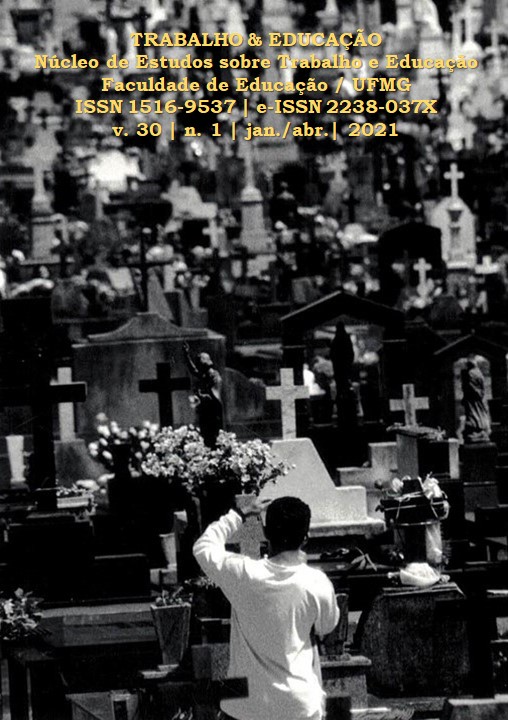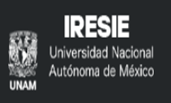Assessment and recognition of prior knowledge
the case of the Qualification and Credit Framework in England
DOI:
https://doi.org/10.35699/2238-037X.2021.29075Keywords:
Qualification and Credit Framework, England, Experiential knowledge recognitionAbstract
This paper aims to analyze the Qualification and Credit Framework, as a device aimed at the recognition and certification of knowledge built by the work experience in England. To this end, conducted bibliographical and documentary researches, which sought to identify the forms and instruments adopted for the recognition and validation of knowledge in the QCF. In addition, to explore the configuration of the process of knowledge recognition, we analyze the structure of the framework for evaluation and the instruments for professional certification for Wall and Floor Tiling. From the proposed discussion, we verified that the process of evaluation and recognition of knowledge in England is a collection of documentation that aim to prove the competencies of the subjects, guided by criteria of assessments that seek to list all the skills and knowledge considered necessary for a particular profession. Finally, we conclude that the way the knowledge recognition process is organized is based on the presuppositions of behavioral psychology, which presupposes that the workers' competences can be unveiled by observing and questioning the workers, leaving aside the unpredictability of work and the creative potential of the worker.
Downloads
References
ALPHAPLUS Ltd - Validation of vocational qualifications: final report. Inglaterra: Ofqual, 2014.
BEETHAM, Helen - E-portfolios in post-16 learning in the UK: developments, issues and opportunities. Bristol: Joint Information Systems Committee, 2005. Disponível em :http://www.jisc.ac.uk/media/documents/themes/ elearning/eportfolioped.pdf>. Acesso em: 06 nov. 2018.
CITY & GUILDS. N/SVQ guide for centres and candidates: centre guide. Londres: City & Guilds of London Institute, 2006.
___________. Recognition of Prior Learning. Londres: City & Guilds of London Institute, 2013a.
____________. Level 2 NVQ Certificate in Wall and Floor Tiling (Construction): candidate
Logbook/work-cased evidence record. Londres: City & Guilds of London Institute, 2013b.
___________. Supporting Customer Excellence Centre Manual. Londres: City & Guilds of London Institute, 2013c.
CLARKE, Linda. Trade? Job? Occupation? The development of occupational labour markets for bricklaying and lorry driving. In BROCKMANN, Michaela; CLARKE, Linda; WINCH, Cristopher (org.) Knowledge, skills and competence in the European labour market. Londres: Routledge, 2011. p. 102 – 119.
COMISSÃO EUROPEIA. Memorando sobre Aprendizagem ao Longo da Vida. Bruxelas: Comissão Europeira. 2000.
CURCIN, Milja; BOYLE, Andrew; MAY, Tom, RAHMAN, Zeeshan. A validation framework for work-based observational assessment in vocational qualifications. Coventry: Ofqual, 2014.
HARTH, Helen; HEMKER, Bas. On the reliability of vocational workplace-based certifications. Research Papers in Education, v. 28, n. 1, p. 75–90, 2013.
LESTER, Stan. The UK Qualifications and Credit Framework: a critique. Journal of Vocational Education and Training, v. 63, n. 2, p. 205-216, 2011.
LIMA, Natália. V.; PETRUS, Ângela. M. F.; CUNHA. Daisy. M. A produção de saberes no trabalho: qual o valor dos saberes investidos? Revista Pedagógica, Chapecó, v. 15, n. 31, p. 321-334, jul./dez. 2013.
NIACE. National Institute of Adult Continuing Education - Using the Recognition of Prior Learning (RPL) within the QCF: A report to the Skills Funding Agency. Londres: NIACE, 2013.
OFQUAL. Office of the Qualifications and Examinations Regulator - Regulatory arrangements for the Qualifications and Credit Framework. Coventry: QCA, 2008.
________. Identifying purposes for qualifications in the Qualifications and Credit Framework: Testing and trialling. Londres: Ofqual, 2009.
________. A Consultation on Withdrawing the Regulatory arrangements for the Qualifications and Credit Framework. Londres: Ofqual, 2014a.
________. Guided Learning Hours: A consultation on the relevance of qualifications for the Raising the Participation Age policy and estimating the size of qualifications. Londres: Ofqual, 2014b.
PIRES, Ana Luisa de Oliveira. Educação e formação ao longo da vida: análise crítica dos sistemas e dispositivos de reconhecimento e validação de aprendizagens e de competências. Tese (Doutorado em Ciência da Educação)- Faculdade de Ciência e Tecnologia, Universidade de Lisboa, Lisboa, 2002.
QCDA. Qualification and Curriculum Development Agency. Claiming credit Guidance on the recognition of prior learning within the Qualifications and Credit Framework.. Londres: QCDA, 2010a.
_______. Guidance for developing rules of combination for the Qualifications and Credit Framework. [manual]. 4.ed. Londres: QCDA, 2010b.
______. Claiming credit Guidance on the recognition of prior learning within the Qualifications and Credit Framework. Londres: QCDA, 2010c.
STASZ, Cathy. The Purposes and Validity of Vocational Qualifications. SKOPE Research Paper, n. 105. Cardiff: SKOPE, 2011.
WINTERTON, Jonathan; DELAMARE, Françoise; STRINGFELLOW, Emma; Typology of knowledge, skills and competences: clarification of the concept and prototype. Luxemburgo: Office for Official Publications of the European Communities, 2006.
Published
How to Cite
Issue
Section
License
Copyright (c) 2021 Trabalho & Educação

This work is licensed under a Creative Commons Attribution 4.0 International License.
Os autores têm autorização para assumir contratos adicionais separadamente, para distribuição não-exclusiva da versão do trabalho publicada nesta revista (ex.: publicar em repositório institucional ou como capítulo de livro), com reconhecimento de autoria e publicação inicial nesta revista.












